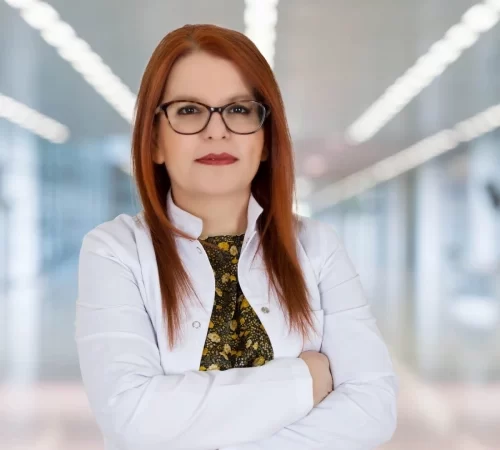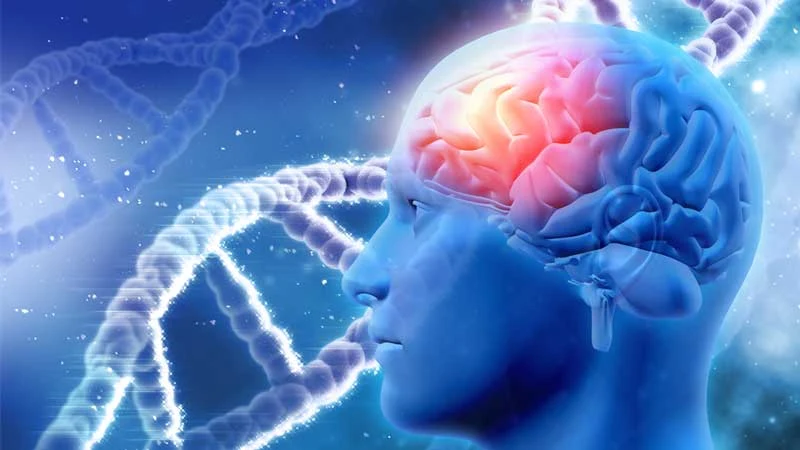Avicenna Hospitals Department of Neurology carries out various diagnostic and treatment procedures for all neurological diseases.
Neurology
Neurology is the field of medical science that studies the physiological structure of the human nervous system and its diseases. The nervous system consists of the brain, spinal cord, peripheral nervous system, and muscles. The neurology department deals with disorders that do not require surgery and occur in any of these three structures in the nervous system. Avicenna Hospitals Neurology Department can provide services for both outpatients and inpatients, with its experienced physicians and outpatient clinic service. On the other hand, any diseases that require intensive care can be supported in the intensive care unit.
Neurological Diseases
Neurological diseases are disorders and syndromes that affect the nervous system due to different reasons. In the diagnosis and treatment of neurological illnesses, laboratory services coordinated with modern medical technology play a critical role.
Diseases Treated at Neurology Department
- BRAIN VASCULAR DISEASES
- HEADACHES (MIGRAINE AND OTHERS)
- EPILEPSY (SARA)
- PERIPHERAL AND CENTRAL NERVOUS SYSTEM DISEASES * NEUROPATHIC ACHES
- MUSCLE DISEASES
- MULTIPLE SCLEROSIS AND SIMILAR DISEASES
- SLEEPING DISORDERS
- DIZZINESS (VERTIGO)
- PARKINSON’S DISEASE
- DEMENTIA (ALZHEIMER’S AND OTHERS)
- BRAIN AND SPINAL CORD TUMORS AND INFECTION * ELECTROENCEPHALOGRAPHY (EEG) IN CHILDREN
Neuromuscular Disorders
Neuromuscular Disorders are one the most common neurological diseases. The most common one is the autoimmune disease, Myasthenia Graves. On the other hand, the genetically transmitted disease is Duchenne Muscular Dystrophy. Since all these diseases cause problems in the nerve and muscle transmission processes, they can cause weakening, thinning, and contractions in the muscles. The disease called Myasthenia Graves mostly seen in the eye region can cause drooping of the eyelids, weakness in the eye muscles, or create problems such as double vision. On the other hand, it can also occur in the mouth area and may cause problems in reflexes such as chewing and swallowing. It may descend to the arm and leg regions in the later stages, creating weaknesses in the muscle structure of these areas.
Demyelinating Diseases
Myelin is the insulating material that surrounds nerve cells and is necessary for the nervous system to work properly. If it is decreased in a nerve cell, neurological diseases may be seen depending on the functions of that nerve cell. This disease is a demyelinating disease. MS is the most common demyelinating disease. It is generally seen with attacks. As a result of the attacks, the complaints may decrease or disappear in the patients. However, these attacks can cause permanent damage.
ALS
Amyotrophic lateral sclerosis, often known as ALS, is a degenerative nervous system illness that destroys nerve cells in the brain and spinal cord, resulting in muscular control loss.
Sleep Disorders
Nowadays the stress level of human beings has increased significantly. This increase has also brought along sleep disorders. Sleep disorders are divided into many branches. Pathologies such as snoring and sleep apnea cause people not to be comfortable enough in their sleep and therefore not be able to get enough sleep. Patients with such problems have a general feeling of tiredness. In such troubles, a sleep test, namely polysomnography, is performed. This test can be carried out both at home and in a hospital setting. In general, if you are snoring or have sleep apnea you have been warned by your relatives, on the other hand, if you think that you sleep too much or too little, make an appointment with the Neurology Department of Avicenna Hospitals.
Movement Disorders
Movement disorders are seen in Parkinson’s disease. In addition, diseases such as dystonia, essential tremor, dyskinesia, and restless legs syndrome can be considered movement disorders. Problems such as trembling in the hands, involuntary movements, loss of facial expression, and gait disturbances can be considered symptoms of Parkinson’s disease. The Neurology Department of Avicenna Hospitals is specialized in the neurological identification and treatment of all movement disorders.
Dementia
Dementia generally occurs with the complaint of forgetfulness. Forgetfulness seen in young people mostly occurs due to depression. Alzheimer’s disease is the root cause of dementia in the elderly. Complaints that start with forgetfulness continue with symptoms such as a decrease in cognitive activities over time, thought problems, difficulties in performing daily tasks, forgetting to eat, and not accepting. These can develop due to problems in the brain vessels.
Headache
Headache, which is one of the most common complaints, is generally caused by migraine or stress. In order to diagnose the disease, the patient explains complaints, and the doctor takes tests accordingly. The neurologist can make referrals to imaging types such as MRI or CT, depending on preference.
Epilepsy
Epilepsy, also known as epileptic seizures, is being examined by the Neurology Department of Avicenna Hospitals. It occurs in the form of seizures. There are types of seizures such as undesirable movements in the arms and legs, loss of consciousness, foaming from the mouth area, and incontinence of urine.
Brain and Vascular Neurological Diseases
Brain and vascular diseases generally occur as brain hemorrhages or vascular occlusion. Stroke, also known as paralysis among people, occurs due to the blockage of one of the cerebral vessels. The occluded blood vessel cannot adequately nourish a part of the brain and a stroke occurs. Cell deaths occur in the region where the clogged vessel cannot feed. Cell death can result in loss of speech, loss of strength, dizziness, vision problems, or loss of consciousness. Neurologists can see the occluded vessel and the damaged area by requesting MRI and Computed Tomography and can initiate the treatment.
Pediatric Neurology
The Neurology Department of Avicenna Hospitals also provides services in pediatric neurology. All children, from newborn babies to 17 years of age, including in the examination area.
Treatment Services at Neurology Department
ELECTROENCEPHALOGRAPHY (EEG)
Electrodes attached to the scalp capture brain waves.. Usually utilized in epilepsy illness monitoring. In a variety of cases, it results in functional loss of brain cells and disrupt brain waves.
ELECTROMYOGRAPHY (EMG)
Electromyography (EMG) is a test that evaluates the health of muscles and the nerve cells that control them (motor neurons). EMG data shows Nerve dysfunction, muscle dysfunction, or issues with nerve-to-muscle signal transmission.
Sleep Test
Polysomnography is a detailed sleep problem diagnostic test. During the test, polysomnography collects your brain waves, blood oxygen levels, heart rate and respiration, and eye and leg movements.




